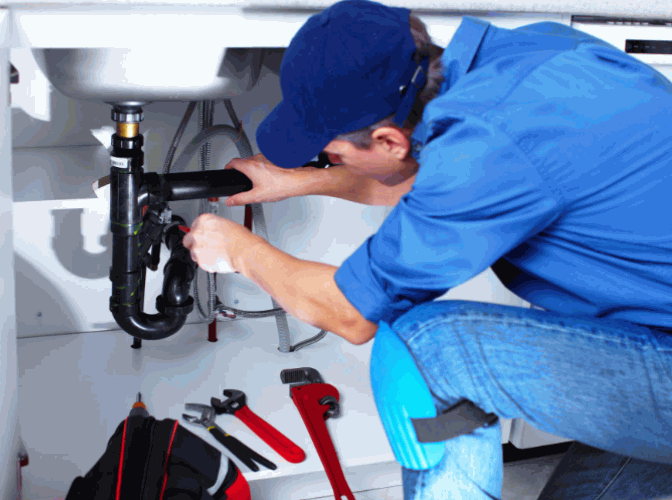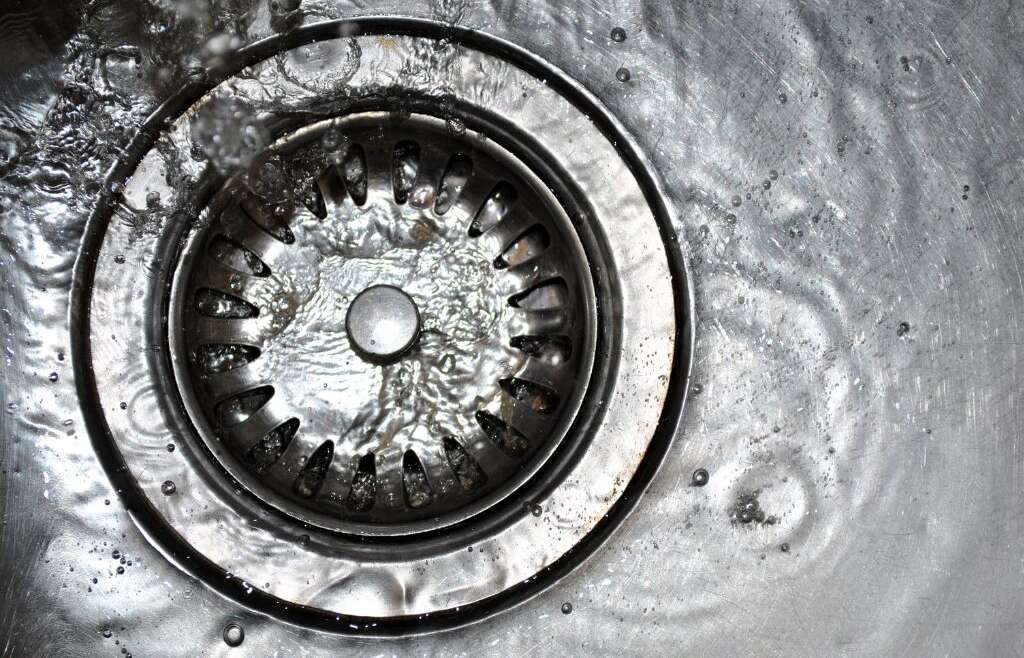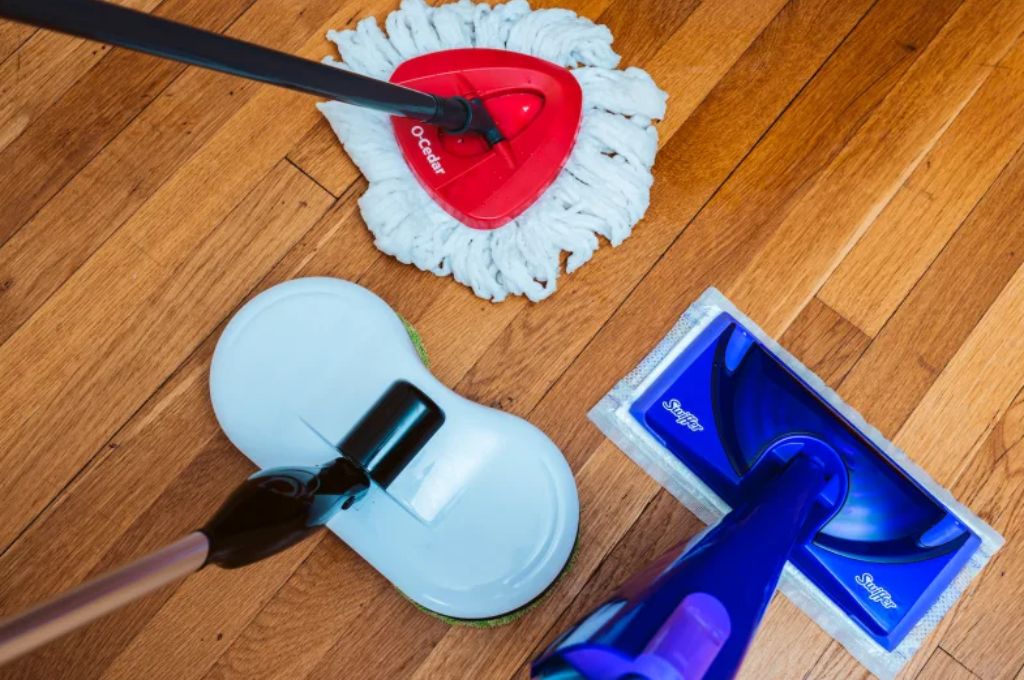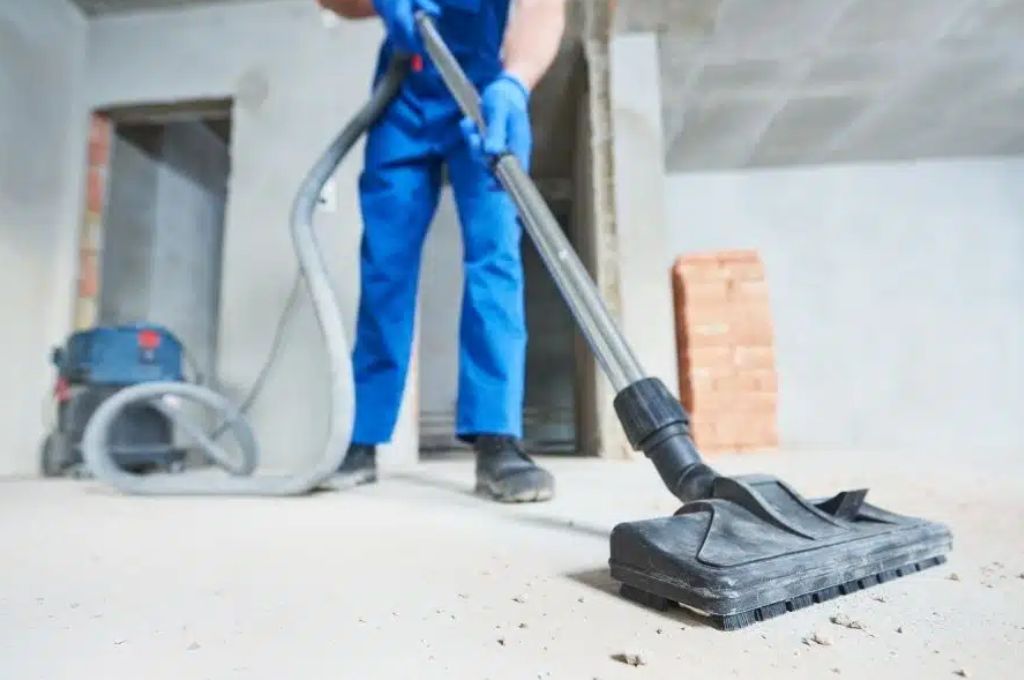Blocked drains can be a real nuisance, causing slow drainage, foul odors, and even gurgling sounds.
Discover the common causes of blocked drains, from hair and soap scum to food waste and grease. Learn how to unclog them using simple methods like plungers and drain snakes, and find out how to prevent future blockages.
Keep your drains flowing smoothly by following these tips!
What Causes A Blocked Drain?
Understanding what causes a blocked drain is crucial for preventing and addressing this common household issue. Blockages in drains can occur in various parts of the house, such as the bathroom, kitchen, and shower, and can often be attributed to specific causes like hair, soap scum, food waste, grease, and foreign objects obstructing the trap or pipe.
Explore: What Drain Cleaner Is Safe For Toilets
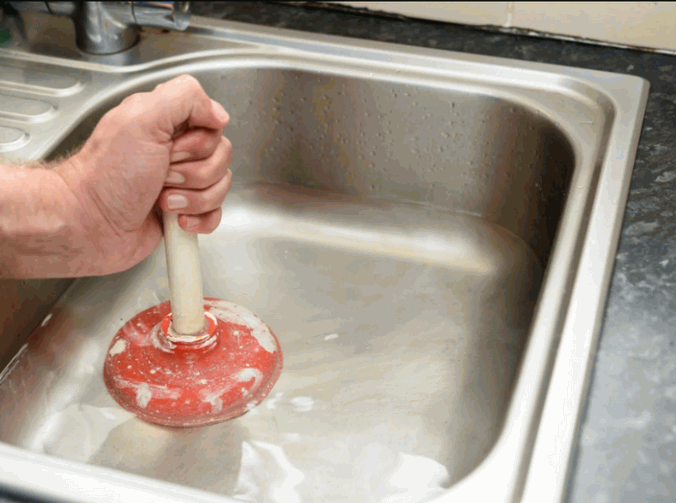
Hair And Soap Scum
Hair and soap scum are common culprits behind blockages, particularly in the bathroom and shower drains.
When you shower or wash your hair, small amounts of hair can easily get washed down the drain along with soap residue. Over time, these materials accumulate and form a sticky, gunky mess that eventually creates a clog in the drain trap. The build-up restricts the flow of water, leading to slow drainage and potential water backup issues in your bathroom.
To prevent hair clogs, consider using a drain strainer to catch hair before it goes down the drain. Regularly cleaning the drain with a mixture of hot water and vinegar can help dissolve soap scum and prevent blockages. In cases where clogs have already formed, you can try using a drain snake or a mixture of baking soda and vinegar to break down the obstruction and restore proper water flow.
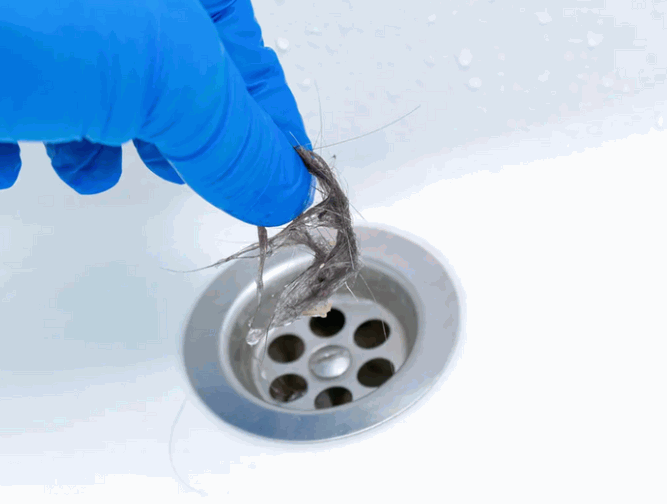
Food Waste
Food waste can easily cause blockages in the kitchen sink, especially when not disposed of properly.
When food particles are washed down the sink, they can accumulate in the plumbing trap. Over time, this buildup can lead to a solid blockage that restricts the flow of water down the drain. The greasy substances and small particles in food waste can cling to the walls of the pipes, creating a sticky residue that traps more particles passing through.
To prevent these blockages, it is advisable to use sink strainers to catch solid food scraps before they enter the drain. Strainers can effectively prevent larger food particles from reaching the plumbing system and causing potential clogs. Regularly cleaning the strainers and disposing of collected waste in the trash can significantly reduce the risk of blockages in the kitchen sink.
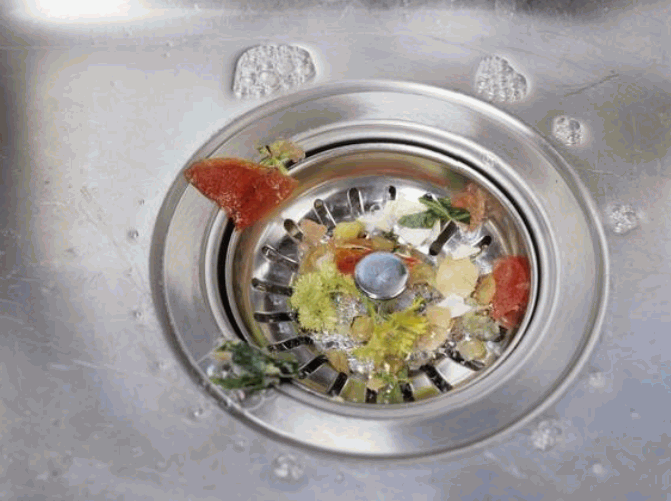
Grease And Oil
Grease and oil are notorious for creating stubborn blockages in kitchen pipes.
When grease and oil are poured down the drain, they may seem harmless in liquid form, but as they cool and solidify, they can stick to the inner walls of the pipes and accumulate over time. This buildup restricts water flow, leading to clogs and potential backups. Preventing this issue is crucial to maintaining a healthy plumbing system and avoiding costly repairs.
Foreign Objects
Foreign objects are a frequent cause of drain blockages, often resulting in severe clogs.
Common items like children’s toys or pieces of jewelry can easily find their way into drains, contributing to blockages. These objects can get stuck in bends or narrow passages, obstructing the flow of water and leading to backups.
To prevent such issues, it’s important to be cautious about what goes down the drain. Regularly cleaning drains and using drain covers can help minimize the risk of foreign objects causing blockages. If a clog does occur, using a plunger or drain snake can often dislodge and remove the obstruction. Seeking professional help may be necessary for more stubborn clogs.
How To Unclog A Drain?
Unclogging a drain can be approached with various methods, depending on the severity of the blockage. Techniques range from simple tools like plungers and drain snakes to natural solutions involving baking soda and vinegar, or more potent chemical drain cleaners.
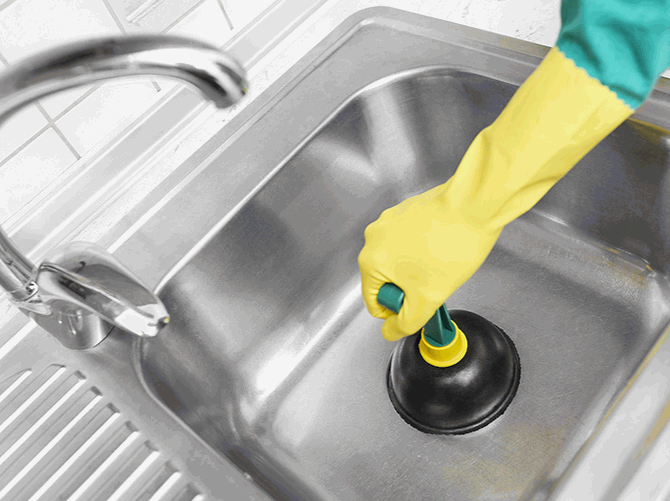
Use A Plunger
Using a plunger is often the first step to unclogging a sink in both the bathroom and kitchen.
In terms of properly using a plunger, it is essential to create a tight seal between the plunger and the drain. Start by filling the sink with enough water to cover the bottom of the plunger cup. Position the plunger over the drain and push it down firmly, then pull up sharply to create suction. Repeat this motion several times to help dislodge the clog.
One crucial tip for effectiveness is to ensure that there is enough water in the sink to cover the plunger cup. In cases where you’re dealing with a double sink, make sure to plug the other drain to maintain better suction.
Using a plunger is most useful for simple clogs caused by organic matter build-up, such as hair or food particles. It is an effective tool for clearing blockages in drains that are not completely blocked.
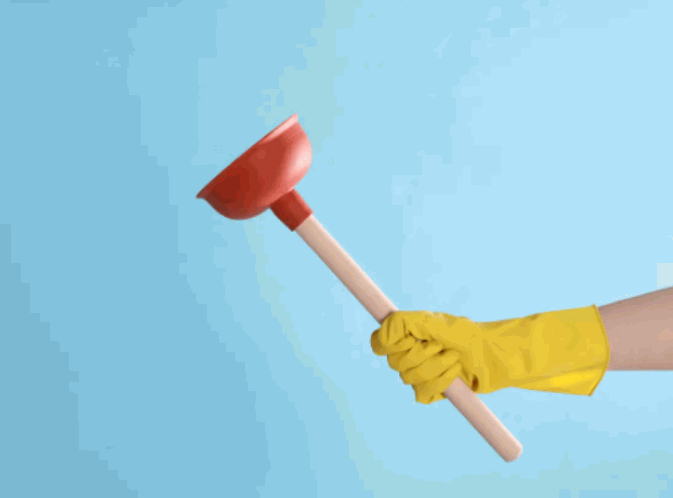
Try A Drain Snake
A drain snake is a handy tool for tackling more stubborn clogs that a plunger can’t handle.
When dealing with hair clogs in bathroom pipes, it’s crucial to use the drain snake correctly to avoid causing damage. Start by inserting the auger end into the drain opening and gently feed it down the pipe until you encounter resistance.
- Rotate the handle slowly in a clockwise direction
Engaging the snake with the clog. Avoid using excessive force to prevent any potential harm to the pipes. Once the snake has grabbed onto the clog, carefully pull it back out, ensuring that the debris is removed with it. Repeat the process if necessary, always being mindful of the pressure applied.
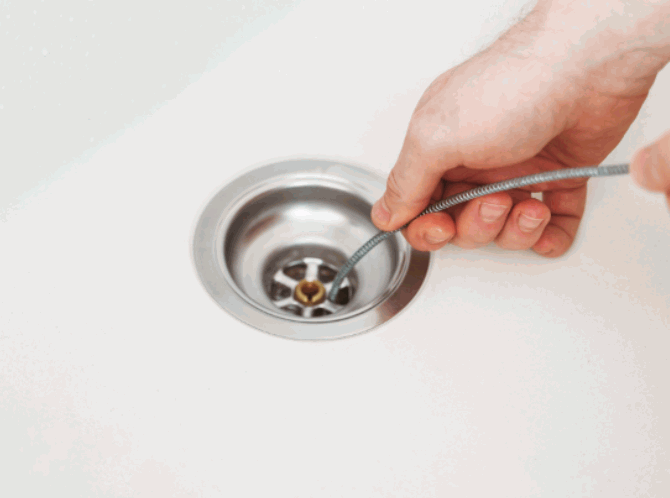
Use Baking Soda And Vinegar
Using baking soda and vinegar is a natural and effective method to unclog and clean drains.
When these two household ingredients combine, they create a fizzy reaction that helps break down dirt, grime, and blockages in the pipes.
- To utilize this method, start by pouring a pot of boiling water down the drain to help loosen any debris.
- Follow this by adding half a cup of baking soda into the drain and allowing it to sit for a few minutes.
- Next, pour a mixture of one cup of vinegar and one cup of hot water into the drain. Quickly cover the drain with a plug or a cloth to contain the foaming reaction.
- Let the solution sit for about 10-15 minutes before flushing the drain with another pot of boiling water to wash away the residue and debris.
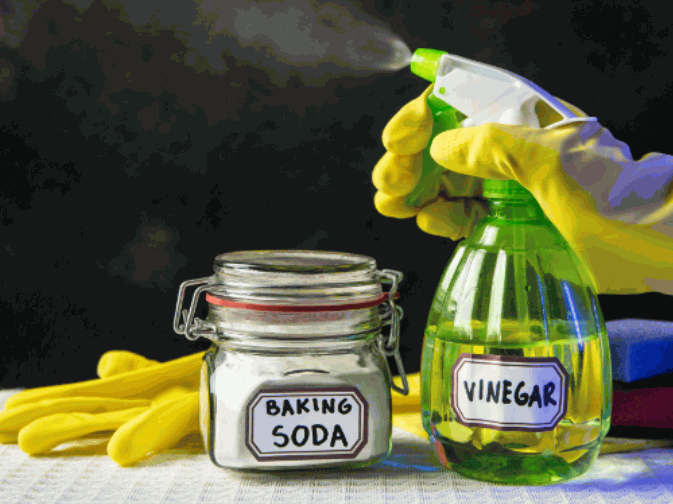
Try A Chemical Drain Cleaner
Chemical drain cleaners can be effective for severe blockages but should be used with caution.
In terms of chemical drain cleaners, there are different types available to tackle various levels of clogs. Sulfuric acid drain cleaners are potent and can dissolve tough obstructions like hair and grease, while bleach-based cleaners work best for minor blockages caused by organic matter. It is crucial to follow safety precautions when using these products, including wearing gloves and safety glasses to protect your skin and eyes from any accidental splashes. Always ensure proper ventilation in the area where you are working with these chemicals to avoid inhaling harmful fumes.
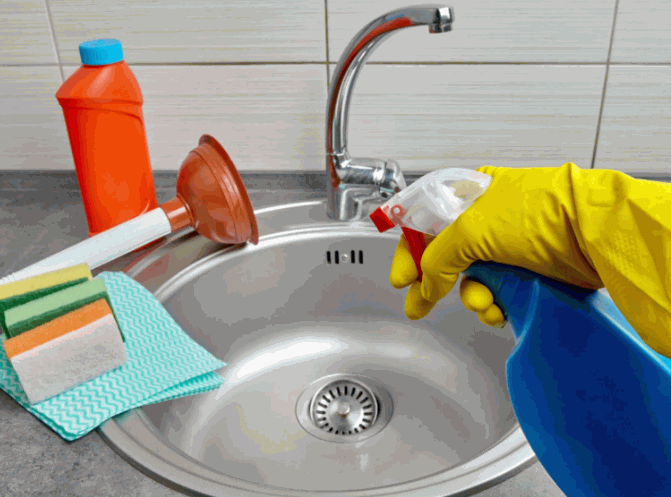
What Are The Signs Of A Serious Blockage?
Identifying the signs of a serious blockage is essential to address the issue before it escalates. Common indicators include slow-draining water, foul odors emanating from the drain, gurgling sounds, and multiple clogged drains in the household.
Slow Draining Water
Slow-draining water is often the first indication of a developing clog in your bathroom or kitchen sink.
When you notice that water is taking longer than usual to disappear from your sink, it’s a telltale sign that there might be a partial blockage forming. This could be caused by a buildup of hair, soap scum, food particles, or even mineral deposits in the pipes, hindering the smooth flow of water.
Addressing this issue early is crucial to prevent a complete blockage that could lead to overflowing sinks and potential water damage. Regular maintenance such as using a drain snake or eco-friendly drain cleaners can help clear out minor blockages before they escalate into a major problem.
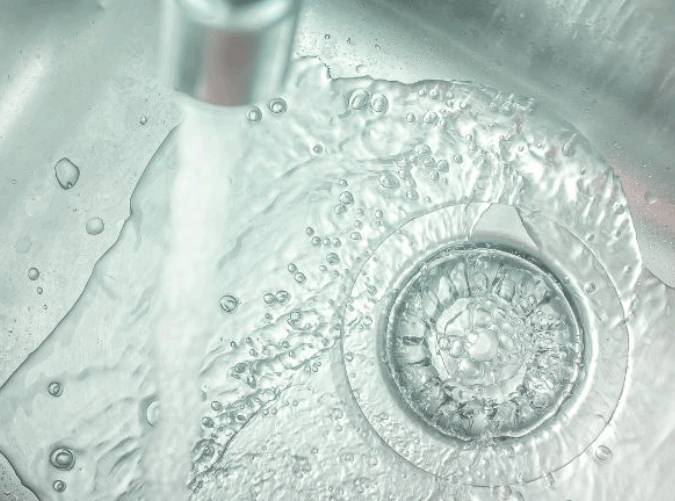
Foul Odors
Foul odors coming from a drain are usually a sign of a blockage or buildup in the trap.
This blockage can lead to stagnant water collecting in the pipes, creating a breeding ground for bacteria and other microbes. As organic materials decompose in the trapped water, they release unpleasant smells that can permeate throughout your home. To eliminate these odors, start by using a mixture of vinegar and baking soda to flush out the drain. This natural solution helps break down the blockage and neutralize the odors. Regularly cleaning your drains with a homemade enzyme cleaner made from citrus peels and vinegar can prevent future buildup and keep your drains smelling fresh.
Gurgling Sounds
Gurgling sounds in a drain often indicate trapped air pockets, a common symptom of a blockage.
These sounds typically occur when water tries to flow past the blockage, causing air to get trapped and creating a gurgling noise as it escapes. The presence of these air pockets can also indicate that the drain is not functioning at its optimal capacity and may need some attention.
- To diagnose the cause of these gurgling sounds, check for any visible obstructions in the drain, such as hair, food particles, or soap scum. Clearing these blockages can help restore proper drainage.
- Regular maintenance of drains by using drain cleaners or natural solutions like vinegar and baking soda can help prevent blockages and minimize gurgling sounds. Scheduling professional plumbing inspections can identify underlying issues and address them before they worsen.
Multiple Clogged Drains
Multiple clogged drains in your home can signal a serious blockage within the main drain system.
When you notice several drains backing up simultaneously, it may indicate a larger issue stemming from the main sewer line. This kind of blockage may lead to sewage backup and potential damage if left untreated. It is important to address this promptly to prevent further complications.
Contacting a professional plumber is advisable in such cases. They have the expertise and tools to assess the situation accurately and determine the most effective solution. A professional inspection can identify the root cause of the blockage and ensure it is properly cleared to restore the normal flow of your drainage system.
How To Prevent Blocked Drains?
Preventing blocked drains involves adopting a few key practices, such as using drain covers to catch debris, properly disposing of waste, regularly cleaning drains, avoiding pouring grease down the drain, and considering professional drain cleaning services.
Use Drain Covers
Using drain covers is an effective way to trap hair and debris, preventing them from entering the drain.
These covers not only prevent clogs in your pipes but also help maintain the proper flow of water. By stopping large particles from going down the drain, they reduce the chances of blockages occurring in the plumbing system. You can install drain covers in various areas of your home such as sinks, showers, and tubs to ensure all drains are protected.
Regular cleaning and maintenance are essential to ensure that the covers continue to function efficiently. It’s crucial to remove any collected debris regularly, keeping the covers clean and free of obstructions.
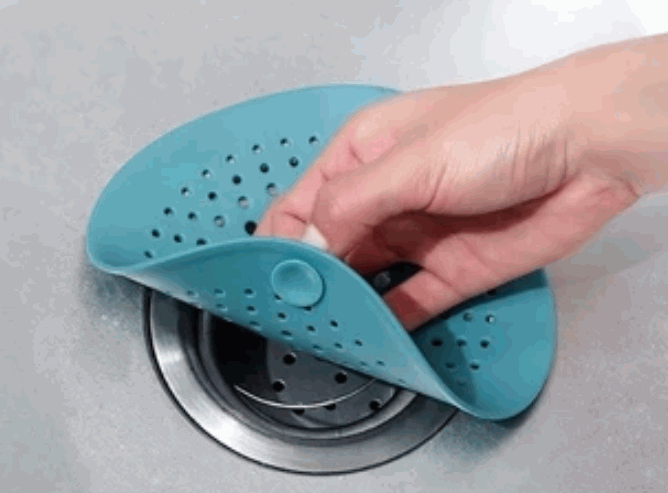
Properly Dispose Of Waste
Properly disposing of waste is crucial in preventing blockages, especially in the kitchen.
In terms of kitchen waste, grease can be a major culprit in causing drain blockages if not disposed of properly. Instead of pouring hot grease down the sink, which can solidify and clog pipes, it’s best to let it cool and then dispose of it in a sealed container. Food waste, such as coffee grounds, eggshells, and fibrous vegetables, should also be thrown in the trash rather than flushed down the drain.
Improper disposal of these items can lead to costly plumbing repairs and environmental damage. The accumulation of grease and food waste in drains can cause backups, and foul odors, and even attract pests. By taking simple steps to dispose of waste correctly, you can help maintain a healthy and efficient drain system in your home.
Regularly Clean Drains
Regularly cleaning drains with methods like baking soda and vinegar can help prevent blockages.
It is essential to establish a systematic cleaning routine to maintain clear drains and avoid future plumbing issues. For instance, incorporating natural cleaning agents not only keeps the drainpipes free from clogs but also helps ensure the longevity of the plumbing system. To achieve optimal results, you can create a monthly plan that includes a combination of DIY solutions like boiling water, or a mixture of salt and baking soda, along with occasional professional check-ups.
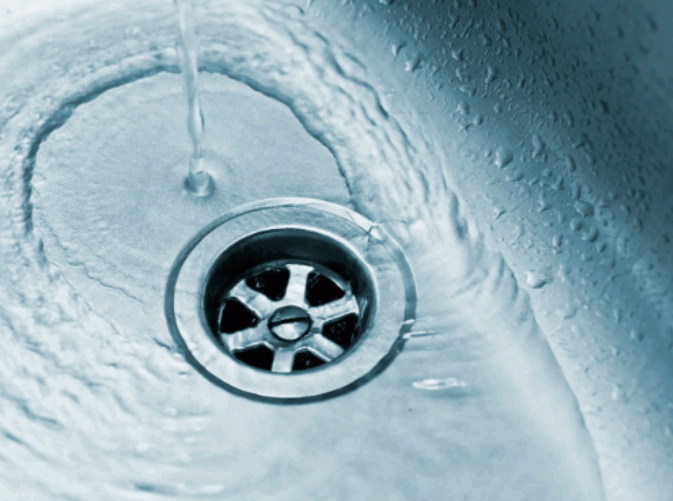
Avoid Pouring Grease Down The Drain
Avoiding pouring grease down the drain is vital to prevent blockages in kitchen pipes.
When hot grease is poured down the drain, it may seem harmless at first, but as it cools, it solidifies and sticks to the walls of the pipes. Over time, this buildup can lead to clogs and blockages, causing slow drainage or even complete pipe obstructions. These blockages can result in costly plumbing repairs and even potential health hazards due to sewage backup in the kitchen sink.
To avoid such issues, it’s crucial to adopt alternative disposal methods for grease. One effective way is to let the grease cool and solidify in a heat-safe container and then dispose of it in the trash. Some municipalities also offer grease recycling programs, where you can drop off used grease for safe disposal.
Consider Professional Drain Cleaning Services
Consider hiring professional drain cleaning services to ensure your drains remain clear and functional.
Professional drain cleaning services can offer a range of advantages that can help maintain the efficiency and longevity of your drainage system. One of the key benefits is the use of advanced technologies like CCTV inspections that allow experts to identify any hidden issues within the pipes without the need for invasive procedures. Specialized techniques like hydro jet cleaning can effectively remove stubborn blockages and buildup, ensuring optimal flow and preventing future clogs.
Knowing when to seek professional help is crucial, especially if you notice recurring drainage problems or slow water flow, as addressing the issue promptly can prevent more extensive damage in the long run.
